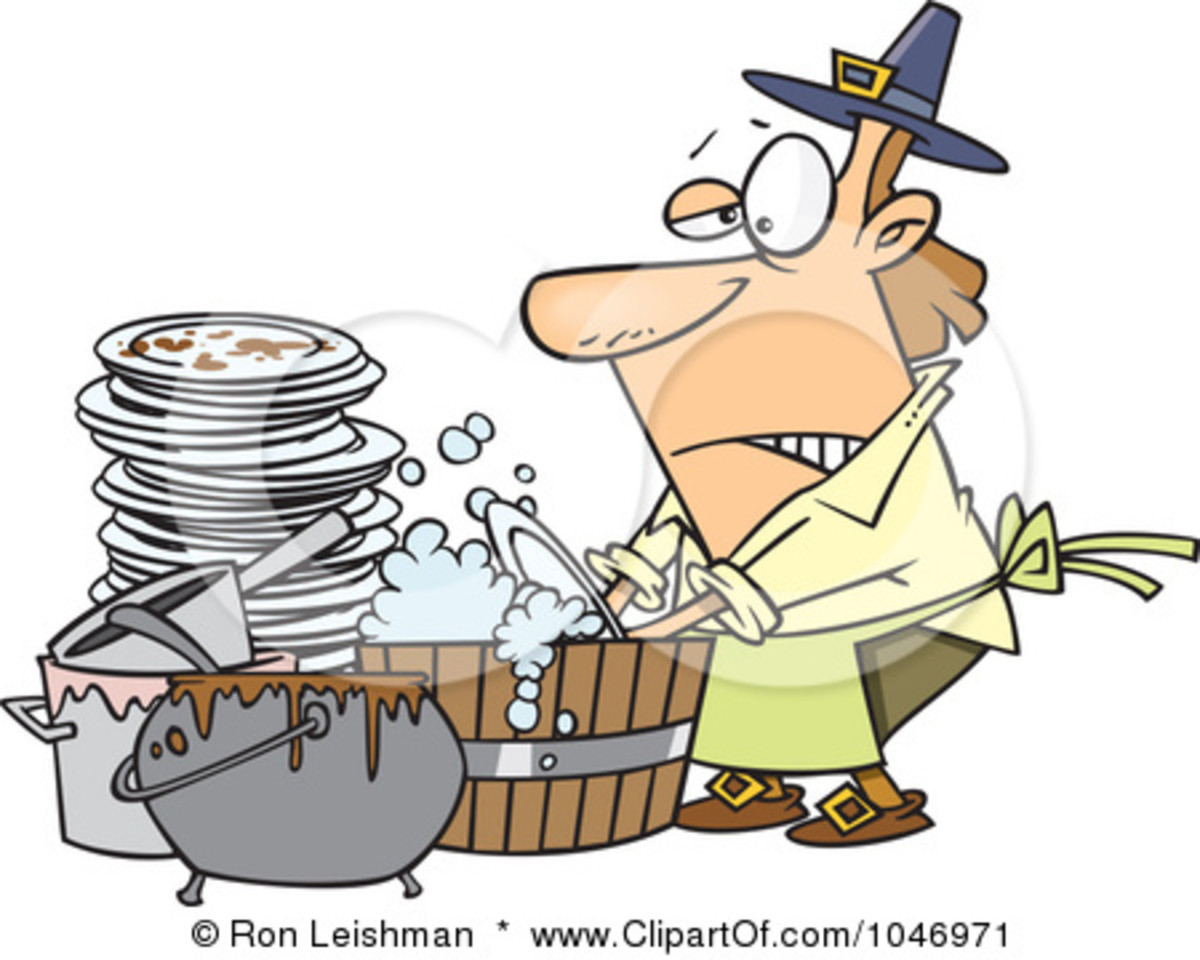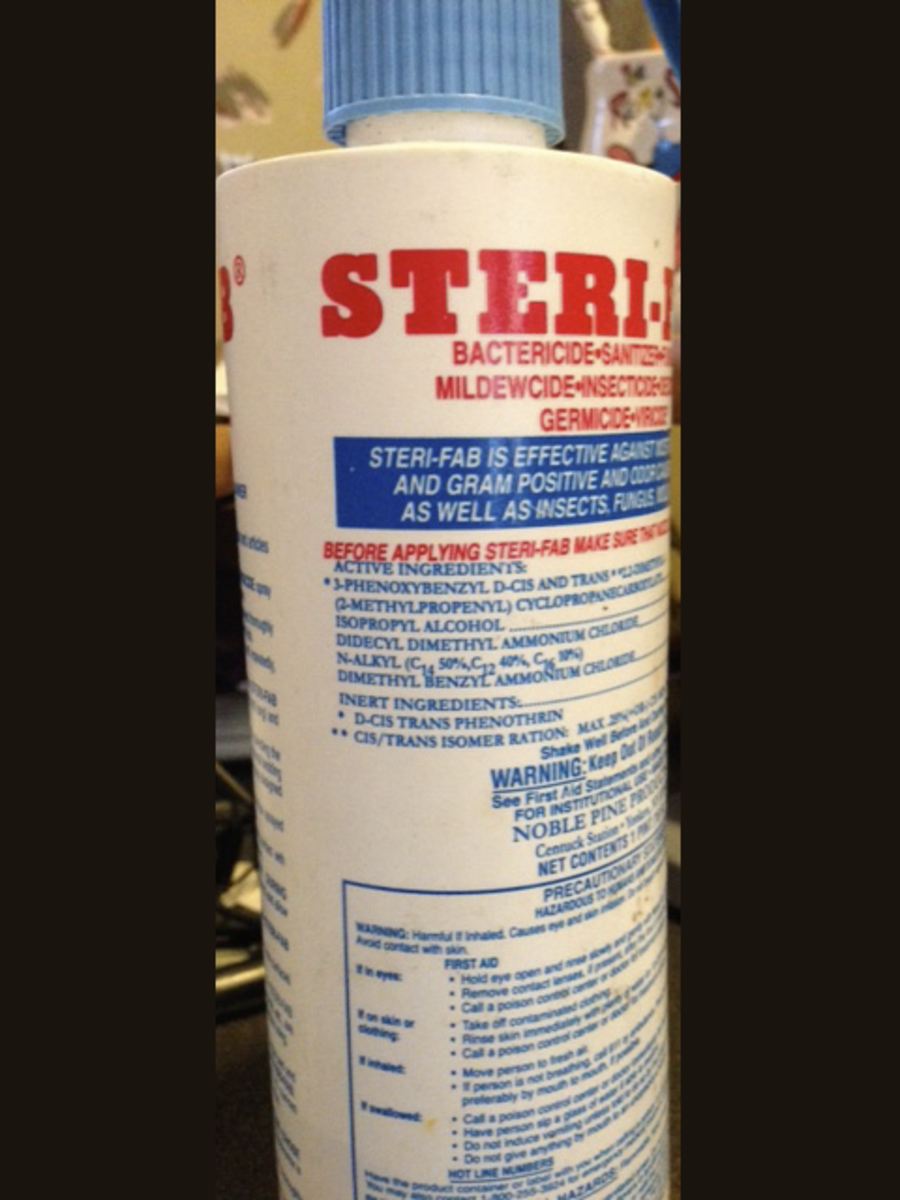3 Steps to Not Hate Cleaning!
Do You Just Hate Cleaning?
Do you hate cleaning? Do you feel like your constantly cleaning but nothing even stays clean? I know the feeling. Once upon a time I would become increasingly frustrated at how, the more time I spent cleaning. The more time I seemed to need to spend cleaning. At first this frustration turned on the people around me. I blamed everyone else for not helping me. Obviously I couldn't possibly not be doing enough. Sound familiar? After going through that cycle a few times I knew I needed to change my approach. With that being said, now I'm going to tell you how I turned a never ending chore into something I don't even think about anymore. And amongst every other demand on your time throughout the day all day, every day, you really shouldn't need too. Agreed? Good. Next...

Where To Begin?
At first I tried to work out why I hated cleaning so much. Thinking 'Why' would solve 'How'. And although I personally found I Like having a clean house. I also realised that the question of 'Why' didn't remotely provide a solution to the larger problem of 'How' to not hate cleaning. To add to that the problem is environmental rather than intrapersonal. Meaning that it involved others in the environment.
What Do You Mean By Environmental?
What I consider an environmental issue, simply means that fixing the issue involves everyone in that said environment. The first step is to know what you specifically are responsible for. If you already know this, Great!
If not, and that will be the majority, then you will need to find out. This may involve having discussions with the significant people in your environment. They must also be aware of their responsibilities. This is the most effective way to start improving things. After all, how can you expect something to be done (the washing for example) if either:
- You didn't know you were expected to do it, or
- No one else knew they were expected to do it.
If you see past the example for a moment, this is the foundation of why you need to know what you are responsible for and leading from that, should know what to expect from others. If you truly put in an effort to use this, it's sure to have a positive effect. If you have issues. Revisit your written or verbal agreements.

Tip: Put It In Writing!
Tip: It might be good to do a 'Responsibilities and Expectations' list for yourself and or others in your environment. Individualised for each person, these plans act as agreed environmental rules. That is, as everyone is aware of what they are responsible for and what they can expect from others. The overall peace and efficiency of the environment is automatically enhanced without conscious effort. That is without conscious effort beyond following the agreed on stated agreement.

What Next?
Now you know what is expected of you. How do you not hate still having to do it. The three most effective techniques I've found are:
- Creating Set Times;
- Distributing Tasks; and
- Reward Yourself!
1. Give It a Permanent Time
Setting specific times to complete tasks frees you from having to guess if you should be doing more or haven't done enough. Also, it prevents you from feeling guilty over not doing enough as long as you follow the set times on the schedule you set. If this doesn't completely restore your sanity, you can time how long it takes you to complete different tasks so you have a concrete idea of just how much time each task will consume.
Example Task Chart (Weekly)
Task
| Time to Complete
| Average Duration
|
|---|---|---|
Take Rubbish Out
| 7:00 - 7:05
| 10 min
|
Fold Washing
| 7:05 - 7:35
| 30 min
|
Vacuum
| 7:35 - 8:20
| 45 min
|
2. Do a Little, a Lot!
Did you notice what was missing from above? We know 'what' we are responsible for. And we have a time of day to complete the task as well as the average time it will take to complete. We still need 'when'.
First thing's first, don't do more than you need to. I don't just mean, don't over do it. I mean if you can handle your house being tidy rather than spotless and cleaning can't help but stress you out, then don't do it. It's ok to settle for tidy if that's your style. The most important thing is that your environment is that it is hygienic and that you're happy living in it. Otherwise, your effort is wasted making yourself miserable. Rather than improving your environment. Understand?
However, I am not one of those people that can settle for tidy and I also hate the feeling of always having to clean. But I will let you in on a little secret, I DO clean constantly, I just don't think of it as cleaning. Confused yet? Let me clear that up for you. This is where doing a little, a lot, comes in. I follow the set times for each individual task, but I do them every single day. Sometimes multiple times a day. The icing on the cake? So do the other people in my environment. Two very, very special things result from this. The first thing you notice is that the average time it takes to complete each task is dramatically reduced. This is in part because there is less to do in shorter intervals, but also because the set time and motions that are required to carry out the task become second nature. Secondly, to just about everyone's amazement, the house stays clean! It really is an amazing sight to see.
Example Task Chart Revised (Daily)
Task
| Time to Complete
| Average Duration
| Times a Day
|
|---|---|---|---|
Take Out Rubbish
| 7:00 - 7:05
| 5 min
| 2 x
|
Fold Washing
| 7:05 - 7:15
| 10 min
| 1 x
|
Vacuum
| 7:15 - 7:25
| 10 min
| 1 x
|
(Differences include a reduction in average task duration as well as Tasks being completed at daily frequency as the cause of this reduction of overall task duration)
3. Reward Yourself
Don't forget that positive behaviour requires reinforcement in the form of reward. This one is personal, you need to identify what you consider to be a worth wild reward. And not just for the short-term but for the long-term as well. But first you need to define what you consider short-term and long-term to be in regards to all or each individual task seperately.

Example Goal Duration Chart
Task
| Goal
| Short-Term
| Long-Term
|
|---|---|---|---|
Take Out Rubbish
| Complete Task Uninterrupted
| 1 Week
| 3 Months
|
Fold Washing
| Complete Task Uninterrupted
| 2 Weeks
| 6 Months
|
Vacuum
| Complete Task Uninterrupted
| 1 Month
| 12 Months
|
Understanding the Example
The example above is just that, an example. For that reason it is flexible. The short and long-term goals can be read as rows or columns. That is, either short-term goals are:
- 1 Week, 2 Week, 1 Month, and long-term goals are 3 Months, 6 Months, and 12 Months, or, Taking the rubbish out (uninterrupted has goal checkpoints of 1 Week and 3 Months. It can be interpreted multiple ways. For convenience.
Additionally the Goal itself can cover all tasks or you can create individual goals tailored to each task. The same thing won't work for everyone and it's essential to be able to see find what words for you and or make adjustments accordingly.
Reminder: Make It You!
Reminder: Make the reward something you want. A suggestion in addition to this is to pick an activity you enjoy and only participate in that activity as part of the set process of rewarding yourself for positive behaviour. This is a guide, how well it works depends on how well you make it work, and how much you want it to work.

Wrapping It Up: What Have We Learned?
Recap:
- Give it a permanent time;
- Do a little, a lot; and
- Reward yourself.
A bit of magic but mostly attitude. These three simple steps make cleaning so much a part of your natural routine, that you don't even notice you're doing it.
Closing Comments
This is by no means an easy thing to do. It requires hard work in the form of consistency. However, the consistency is more than worth it. As you begin to realise just how smoothly your environment functions. Good luck and have fun!
***This article was inspired by Gypsy Rose***








